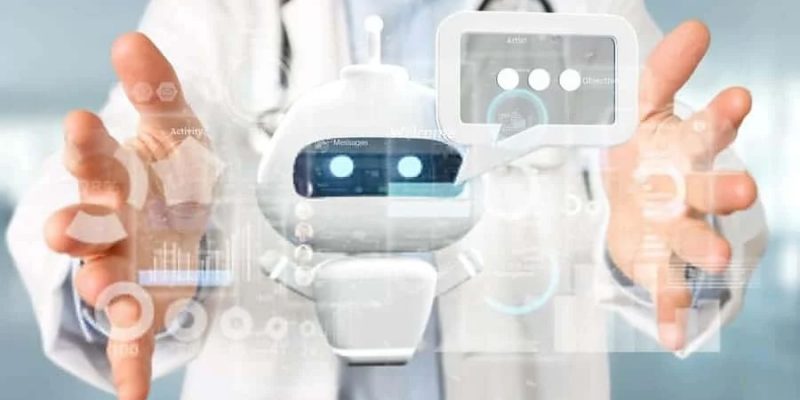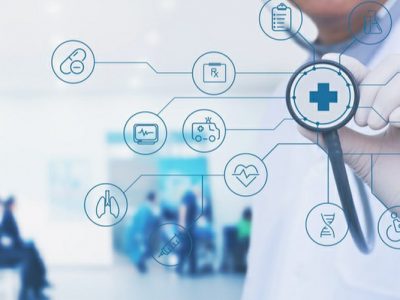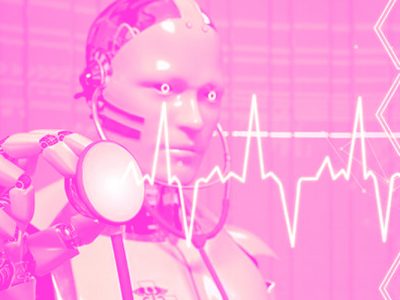
How are Conversational AI-powered chatbots are revolutionizing and democratizing the healthcare industry?
What is Conversational AI or Chatbots?
Conversational AI, one of the most basic types of AI offered via chatbots/virtual assistants, is revolutionizing healthcare with natural two-way dialogues, making it simpler for healthcare practitioners to give high-quality care to patients. AI applications improve the lives of patients, physicians, nurses, and more.
How Chatbots may help the healthcare industry:
Organizations & patients alike face spiraling prices, overworked employees, and extended wait times. Healthcare chatbot companions have the potential to fix these challenges and alter our perceptions of medical treatment. With customized chatbots for healthcare, organizations may increase the efficiency of existing support systems, cut costs, and, most importantly, assist a larger number of patients. Healthcare, being the world’s most important sector, should never stop seeking to innovate, adapt, and develop new methods to deliver the greatest possible service to patients.
The face of the healthcare sector is always evolving, and AI in healthcare gives a fresh chance for this development to continue. AI chatbots for healthcare are a relatively new but very powerful addition to a provider’s digital arsenal, allowing them to function more efficiently and effectively in crucial areas.
Users may currently communicate with healthcare professionals quickly and simply via voice/ text-based chatbots and virtual assistants to acquire information, arrange appointments, and more. Healthcare providers, for their part, are simplifying and automating numerous operations, therefore enhancing efficiency and the patient experience. There are several other use cases and applications for conversational AI in healthcare.
Features of chatbots in healthcare:
1. Monitoring: keeping track of the user’s behavior, anxiety, and weight fluctuations in order to urge them to establish healthier habits.
2. Anonymity: Anonymity is important, especially when dealing with sensitive or mental health concerns.
3. Personalization: The level of personalization is determined by the application. Mobile sensors are used in certain applications to detect physical vitals (oxygenation, heart rate, and body temperature), while facial recognition is used in others to recognize patient behavior.
4. Real-time interaction: Instant responses, alerts, and reminders are all examples of real-time engagement.
5. Scalability: capacity to respond to a large number of users.
Applications of Chatbots in Healthcare:
• Faster appointment booking: By asking a few text or voice commands utilizing conversational signals, healthcare bots may assist patients and their guardians arrange doctor appointments swiftly and conveniently.
• Timely information sharing: Healthcare practitioners may utilize healthcare bots to distribute useful information to individuals, such as infrastructure upgrades, test results, and new treatment alternatives, enhancing user connect, especially for non-critical therapy.
• Priority emergency care: Healthcare bots can use big data to discover irregularities and raise red lights continuously. A healthcare bot, for example, can inform clinicians about looming indicators of a person’s health problems well in advance based upon symptoms & patient history, allowing for better diagnosis and treatment.
• Post-treatment follow-up: AI-enabled chatbots can help both healthcare practitioners and patients through the healing process by tracking important milestones and deadlines and advising actions through alert-based mechanisms.
• Handle insurance inquiries: Patients or plan members can use chatbots to get insurance services & healthcare resources. Furthermore, by combining RPA and other automation systems with chatbots, insurance claim processes and healthcare billing may be automated.
• Provide mental health assistance: Chatbots that would provide mental health help are taught to give cognitive behavioral therapy (CBT) for depressed patients, with PTSD, and anxiety, or to teach autistic individuals how to socialize and job interview abilities. Chatbots may be interacted with via text, audio, and cameras.
The applications of conversational AI in healthcare are plenty.
Future of Chatbots:
The global COVID-19 pandemic has sparked a demand for chatbots providing healthcare assistance without putting healthcare workers at risk. This global experience will have an impact on the healthcare industry’s reliance on chatbots and may open up new chatbot implementation chances in the future.



















